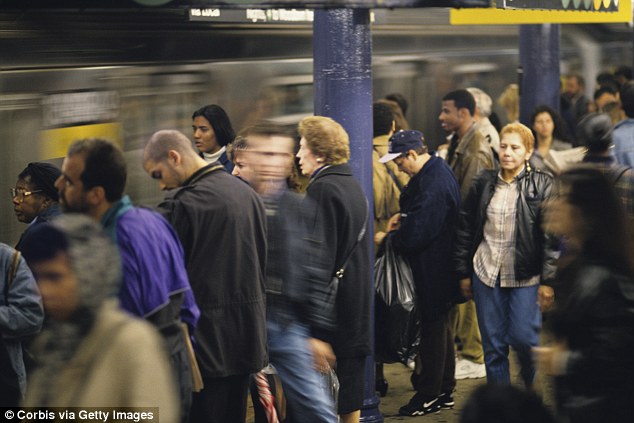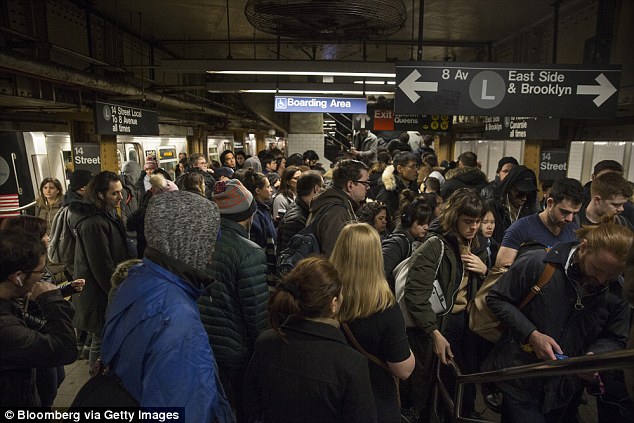

For the next 10 years, New Yorkers will be subjected to night and weekend closures of the subway system as part of a ‘revitalization plan’ from the MTA.
New York City Transit President Andy Byford is expected to announce a plan to replace the signals in a large portion of the network over the next decade on Wednesday,The New York Post reported.
The MTA also hopes to make 50 stations more wheelchair accessible over the next five years.
About three million Subway users will be the first to feel the pain of cancellations and delays, sources told the Post, as the Lexington Avenue line from the 149th Street Grand Concourse in the Bronx to Nevins Street in Brooklyn goes under construction.
The A/C/E line from Columbus Circle to Jay Street-MetroTech, portions of the F and G lines in Brooklyn and the E/F/M/R line in Queens, will also be affected over the first five years of the plan.

New York commuters will be faced with 10 years of night and weekend cancellations and closures (stock image)

Sources say five million commuters will be impacted by the changes as the MTA works to replace old signal technology (stock image)
Next will be the Sixth Avenue line impacting commuters on A and C trains between between Jay Street-MetroTech to Lefferts Boulevard and Ozone Park.
The Rockaway shuttle and segments of the Broadway Avenue line will also be affected in the last five years of the plan, impacting two million commuters.
While the decade of delays could be worth it in the long run, there is growing concern over who will pay for the construction.

 Award-winning photos show poverty reduction achievements in NE China's Jilin province
Award-winning photos show poverty reduction achievements in NE China's Jilin province People dance to greet advent of New Year in Ameiqituo Town, Guizhou
People dance to greet advent of New Year in Ameiqituo Town, Guizhou Fire brigade in Shanghai holds group wedding
Fire brigade in Shanghai holds group wedding Tourists enjoy ice sculptures in Datan Town, north China
Tourists enjoy ice sculptures in Datan Town, north China Sunset scenery of Dayan Pagoda in Xi'an
Sunset scenery of Dayan Pagoda in Xi'an Tourists have fun at scenic spot in Nanlong Town, NW China
Tourists have fun at scenic spot in Nanlong Town, NW China Harbin attracts tourists by making best use of ice in winter
Harbin attracts tourists by making best use of ice in winter In pics: FIS Alpine Ski Women's World Cup Slalom
In pics: FIS Alpine Ski Women's World Cup Slalom Black-necked cranes rest at reservoir in Lhunzhub County, Lhasa
Black-necked cranes rest at reservoir in Lhunzhub County, Lhasa China's FAST telescope will be available to foreign scientists in April
China's FAST telescope will be available to foreign scientists in April